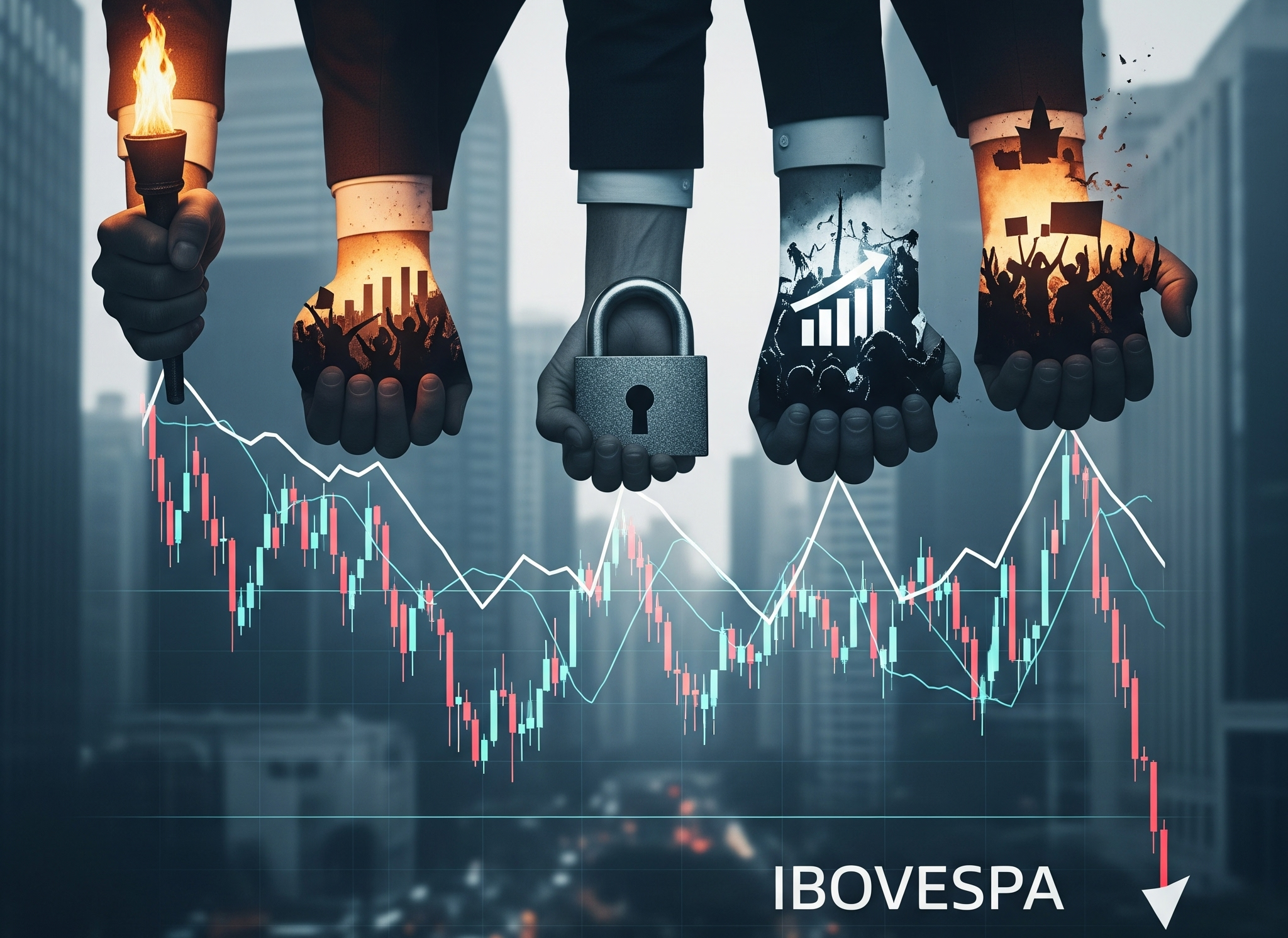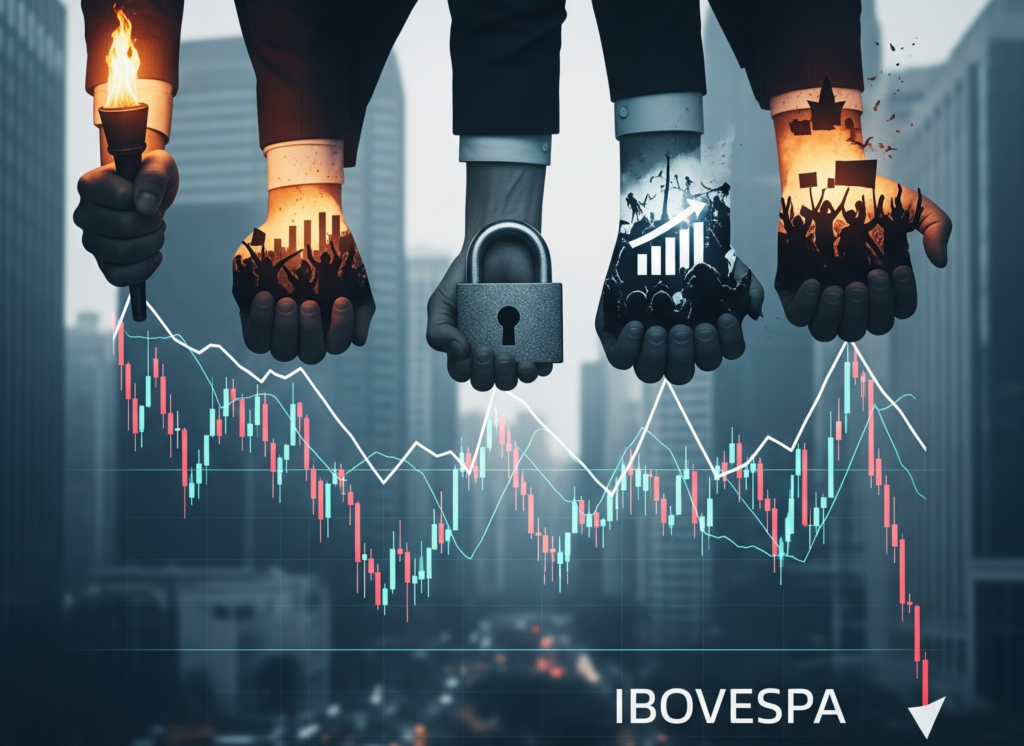
The Brazilian stock market, represented by the Ibovespa index, experienced a downturn today, prompting concerns among investors and analysts alike. An economist specializing in Latin American markets pointed out that domestic factors are significantly influencing the index’s recent performance. This analysis sheds light on the intricate dynamics affecting Brazil’s financial landscape and offers insights into what investors can anticipate moving forward.
The Current State of the Ibovespa
On the trading floor today, the Ibovespa declined, reflecting a broader sentiment of caution among investors. The index, which aggregates the performance of the most traded stocks on the São Paulo Stock Exchange (B3), is often seen as a barometer of Brazil’s economic health. A drop in the index signals worries about the country’s economic stability, political climate, or other internal issues.
According to data from B3, the Ibovespa fell by approximately 1.5% during the day, closing at a level not seen since several weeks ago. This decline was driven by a combination of factors, including global market trends, but notably, domestic issues played a prominent role.
Domestic Factors Impacting the Market
The economist, whose insights are rooted in recent analyses and market observations, emphasized that several domestic factors are exerting downward pressure on the Ibovespa. These include political uncertainties, economic policy concerns, and corporate earnings outlooks.
Political Uncertainty: Brazil has been navigating a complex political landscape lately. Ongoing investigations, legislative debates, and government reforms have kept the political environment volatile. Investors tend to react negatively to uncertainty, fearing that political instability could hamper economic growth or lead to unpredictable policy shifts.
Fiscal and Economic Policy Concerns: Recent discussions about fiscal reforms, inflation control, and government spending have created apprehension. Uncertainty surrounding the implementation and effectiveness of reforms can impact investor confidence. Additionally, Brazil’s inflation rates and interest policies influence corporate profitability and economic stability, which in turn affect stock valuations.
Corporate Earnings and Sector Performance: Domestic companies listed on the Ibovespa are also feeling the strain. Some sectors, such as banking and commodities, are facing headwinds due to global supply chain disruptions and commodity price fluctuations. However, local economic conditions, including consumer spending and investment levels, are also contributing to cautious investor sentiment.
Broader Context: Global vs. Domestic Influences
While international factors, such as global economic slowdown fears and geopolitical tensions, have historically affected emerging markets, the economist highlights that Brazil’s current challenges are predominantly domestic. The recent decline in the Ibovespa underscores how internal political and economic issues can overshadow external influences, especially when investors are seeking clarity and stability.
For instance, recent geopolitical conflicts and global inflationary pressures have caused volatility in markets worldwide. However, in Brazil, the immediate concerns revolve around policy implementation and political stability, which are more pressing for local investors.
Investor Sentiment and Future Outlook
The overall investor sentiment indicates caution amid these domestic uncertainties. Analysts suggest that unless there are significant political or economic policy breakthroughs, the Ibovespa may continue to face downward pressure in the near term.
However, the economist also points out that these challenges could present opportunities for long-term investors who are willing to navigate short-term volatility. Historically, periods of political and economic turbulence in Brazil have been followed by recoveries, especially when structural reforms are successfully implemented.
Market Expectations: Experts are closely watching upcoming government statements, economic data releases, and legislative developments. Positive signals—such as progress on fiscal reforms or political stabilization—could bolster investor confidence and reverse the current downward trend.
The Importance of Domestic Factors in Emerging Markets
This situation exemplifies a broader pattern observed in emerging markets, where domestic factors often have a more pronounced effect on stock performance than global trends. Political stability and sound economic policies are crucial for attracting investment and ensuring sustainable growth.
Research from institutions like the International Monetary Fund (IMF) and the World Bank emphasizes that political and economic reforms are vital for emerging economies to unlock their growth potential. Brazil’s experience underscores this, as domestic uncertainties continue to influence market dynamics.
Conclusions and Implications
In summary, the decline of the Ibovespa today is primarily driven by domestic factors, including political uncertainty, economic policy concerns, and sector-specific challenges. While global influences are always present, Brazil’s internal environment appears to be the dominant force affecting investor sentiment at this moment.
For investors, understanding the underlying domestic issues is essential for making informed decisions. While short-term volatility may persist, the long-term outlook will depend on the government’s ability to stabilize the political landscape and implement effective economic reforms.
As Brazil continues to navigate its internal challenges, stakeholders remain cautiously optimistic that with appropriate policy measures and political stability, the nation’s markets can recover and grow. For now, domestic factors will continue to weigh heavily on the Ibovespa, shaping the trajectory of Brazil’s financial markets in the near future.

